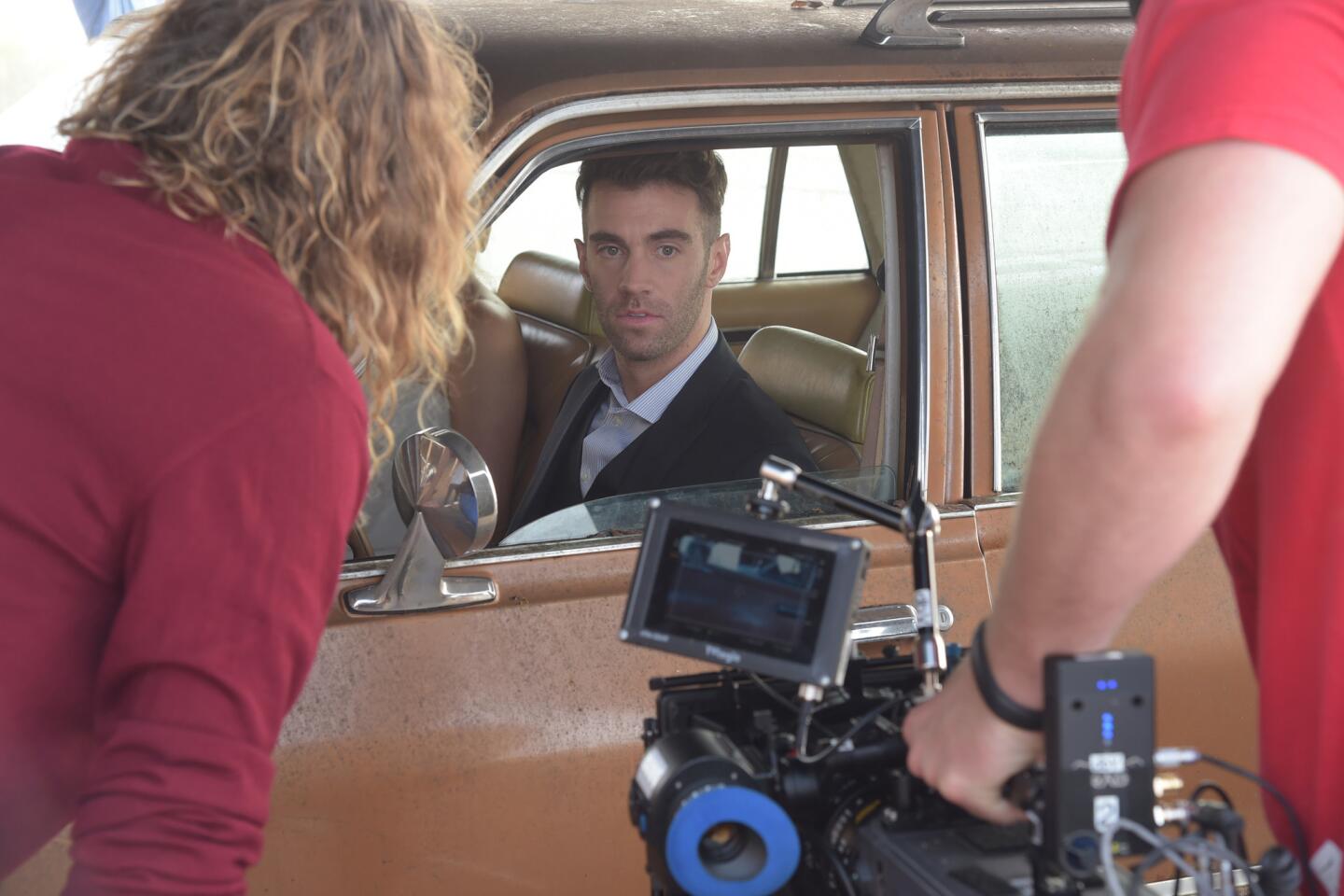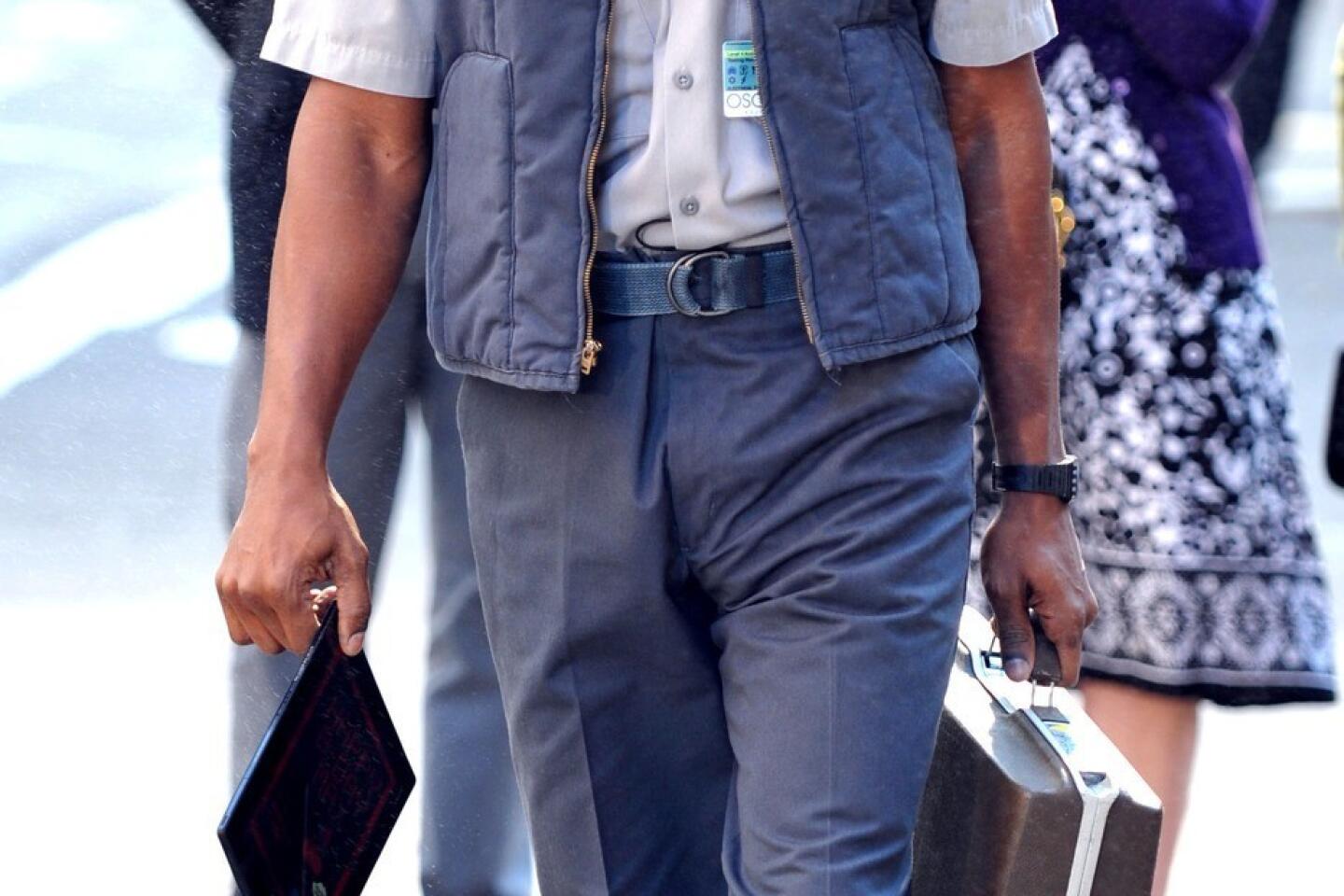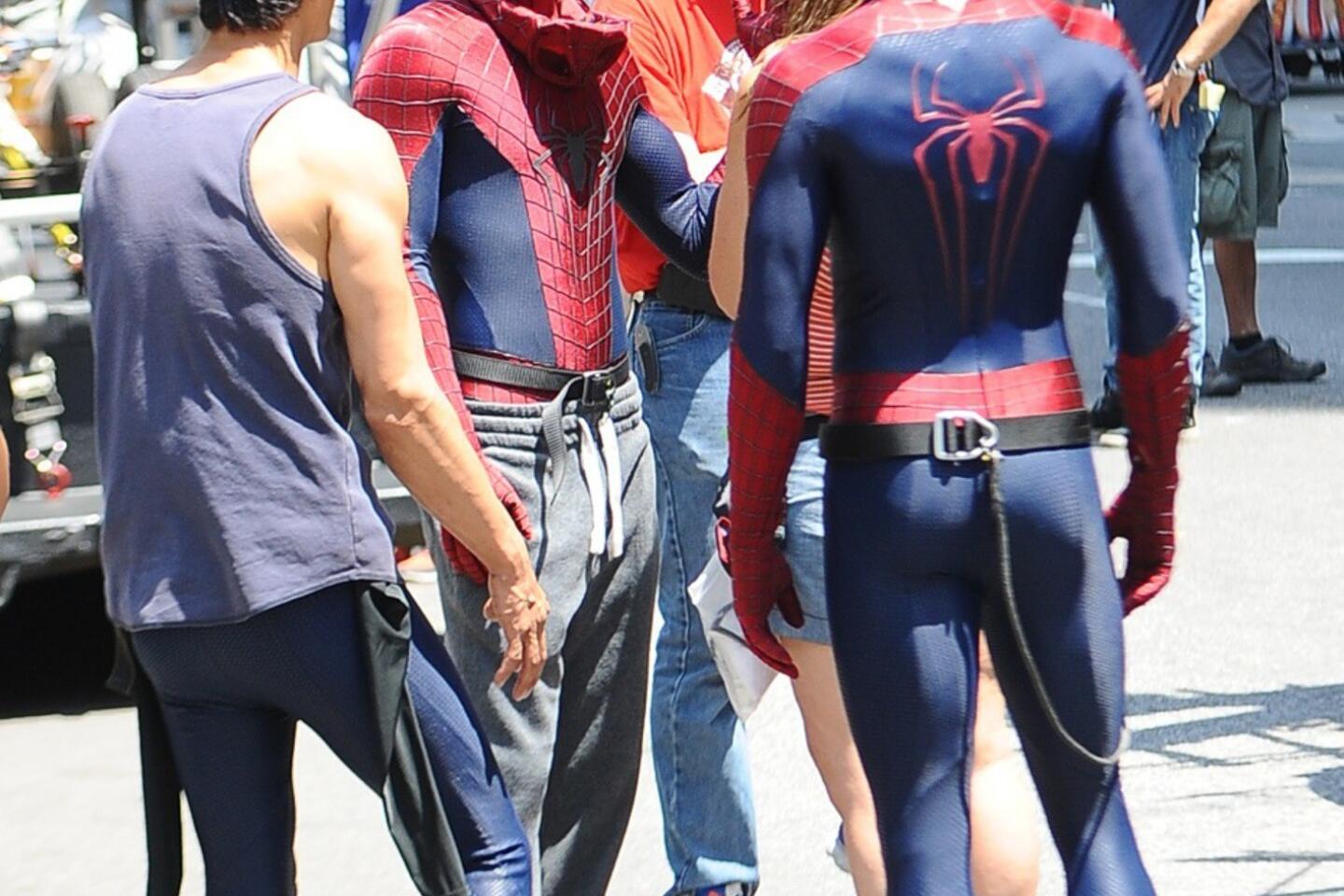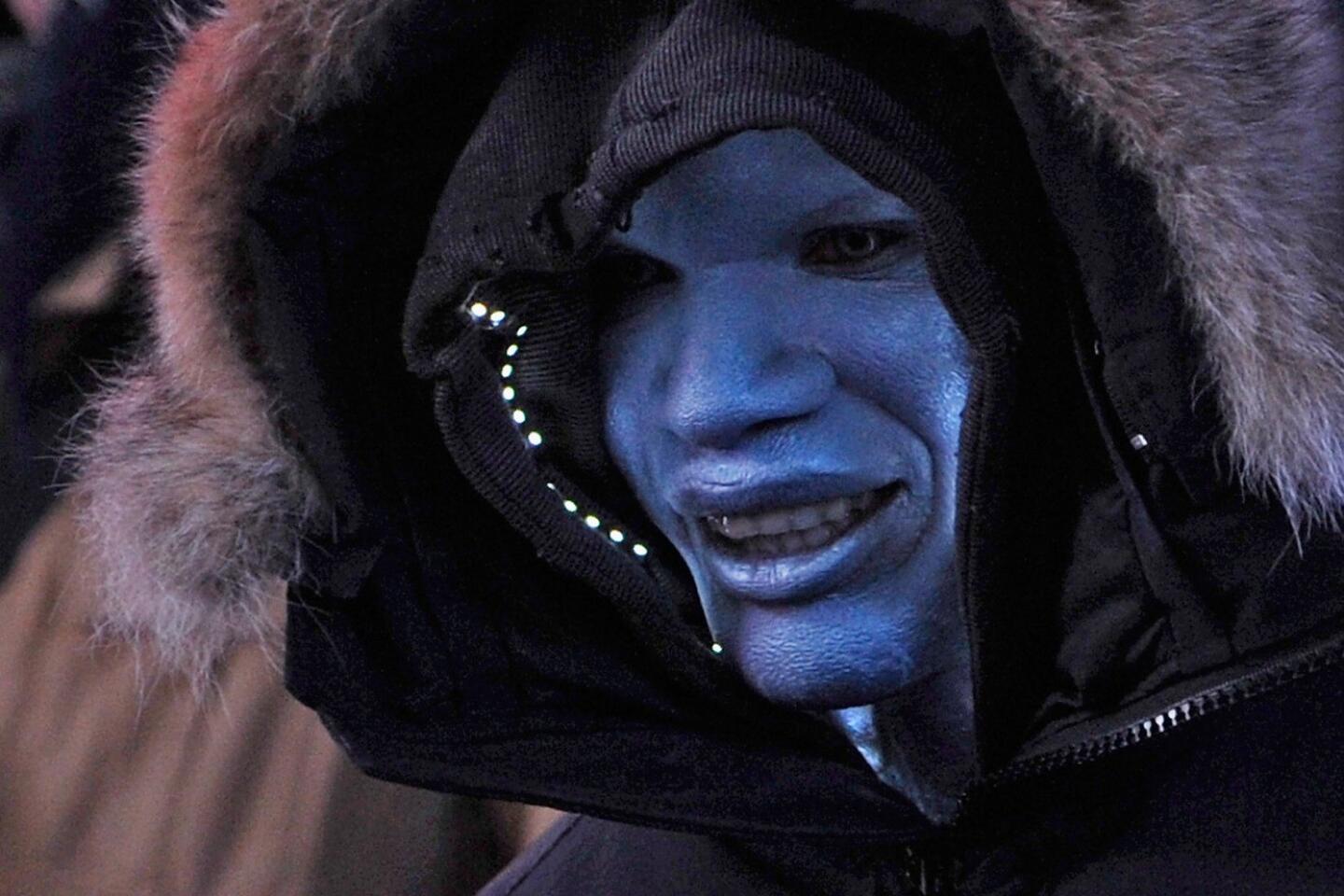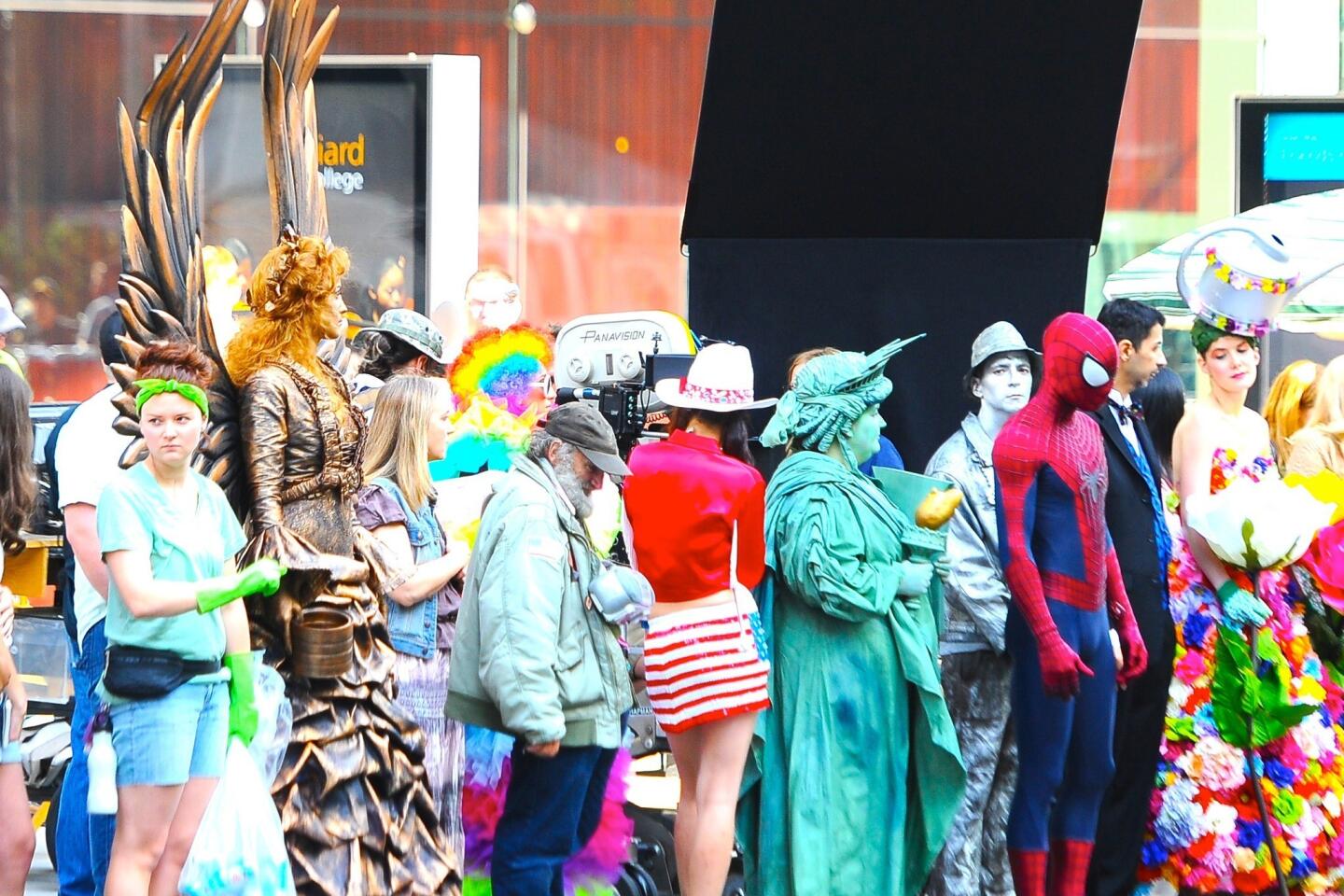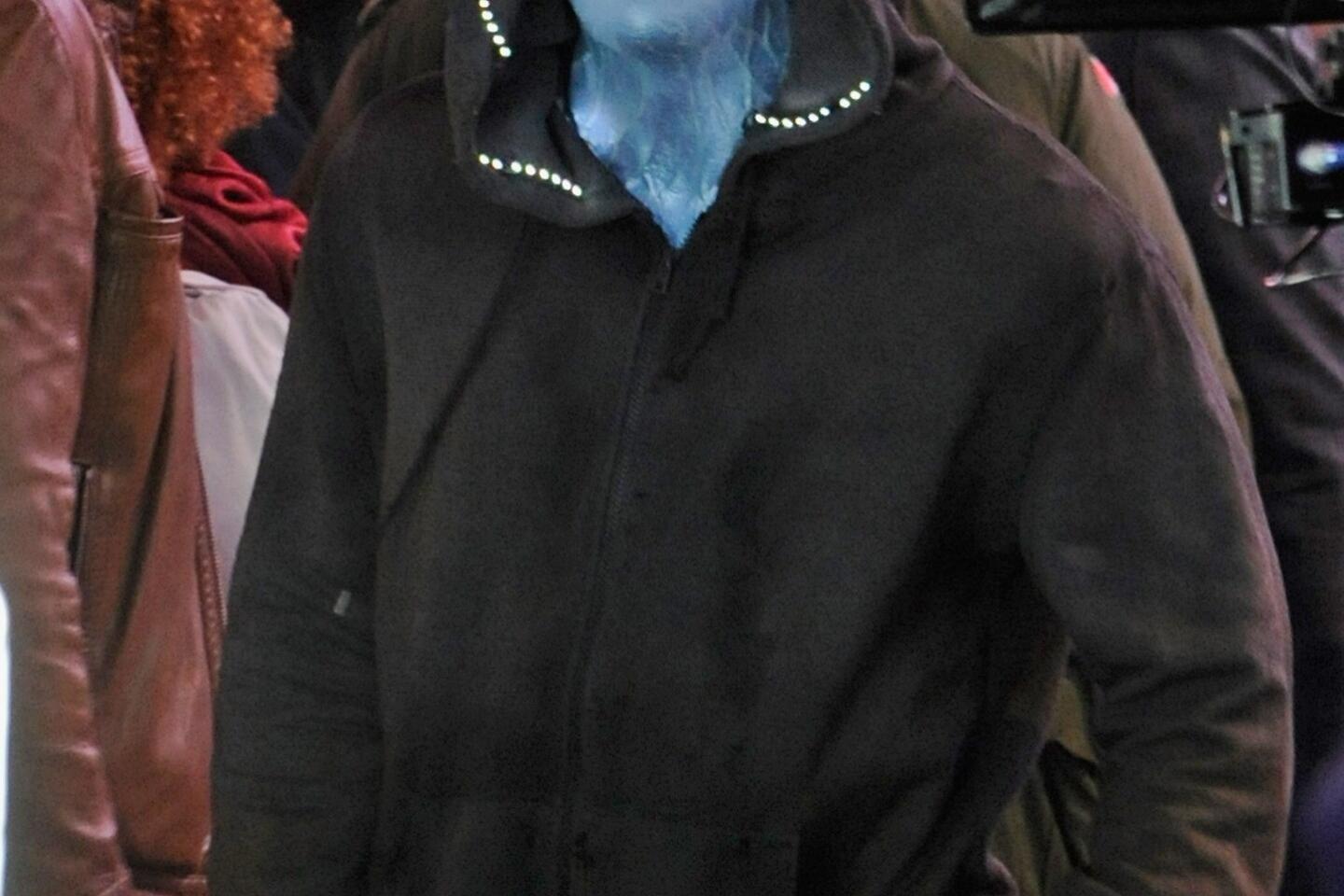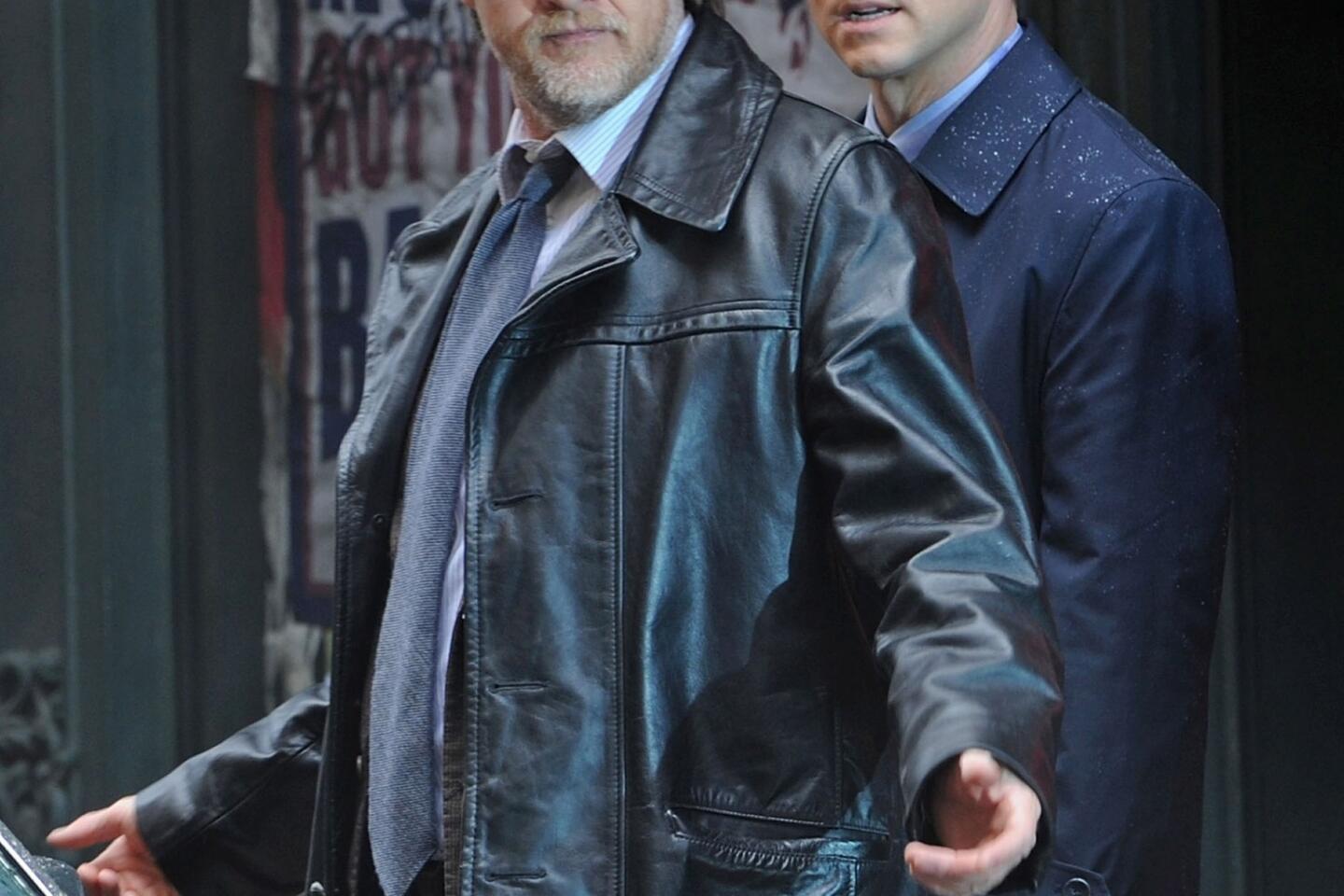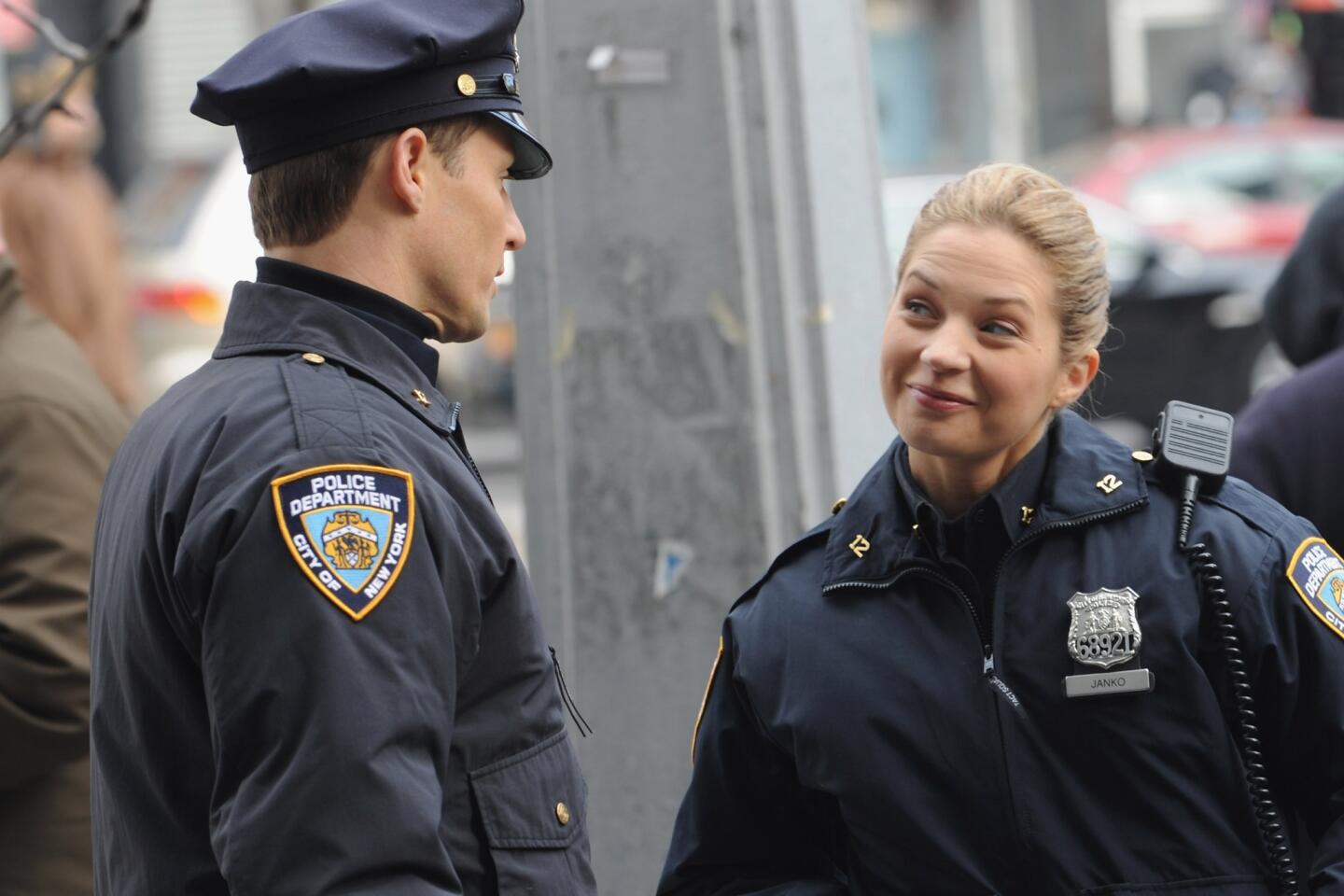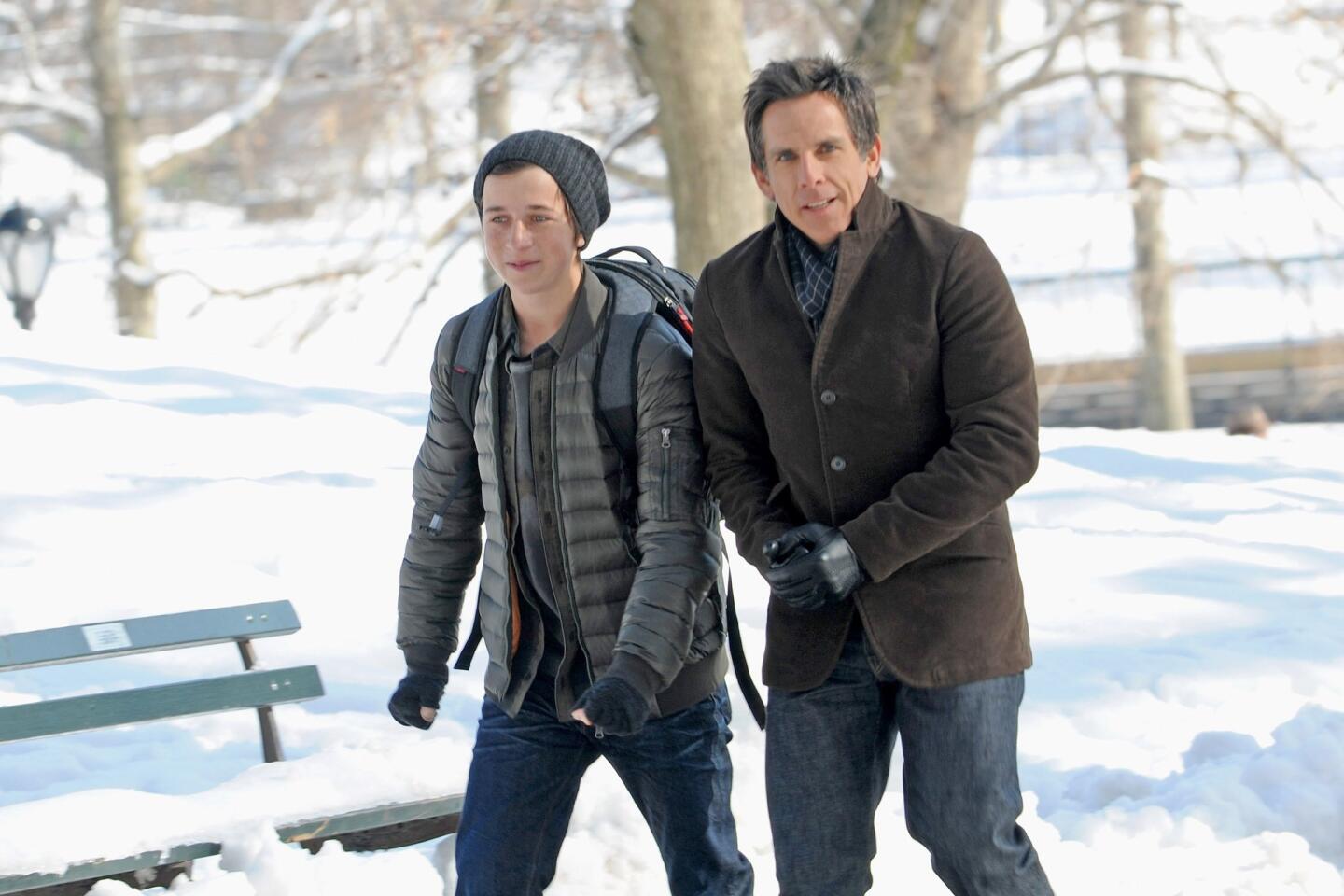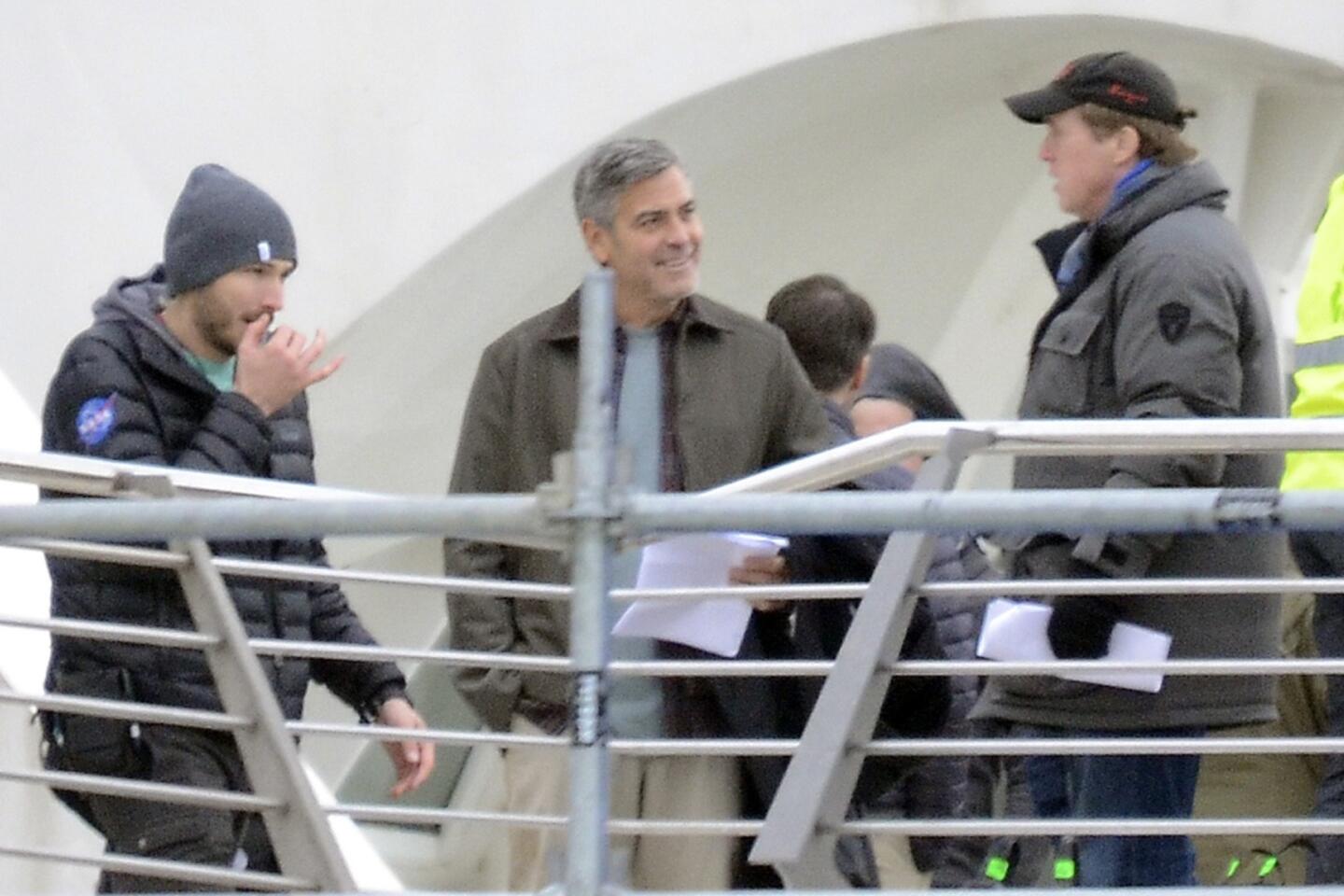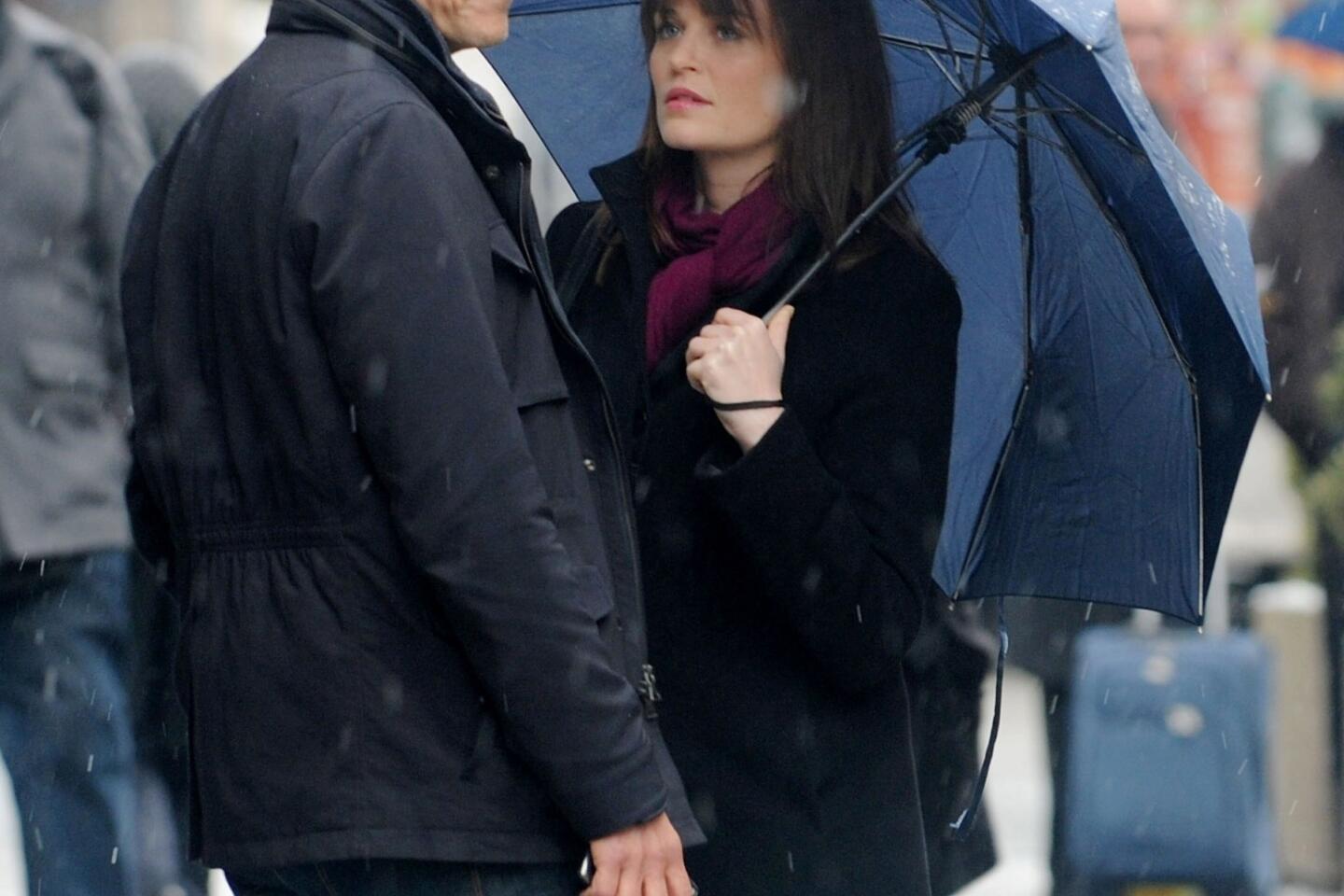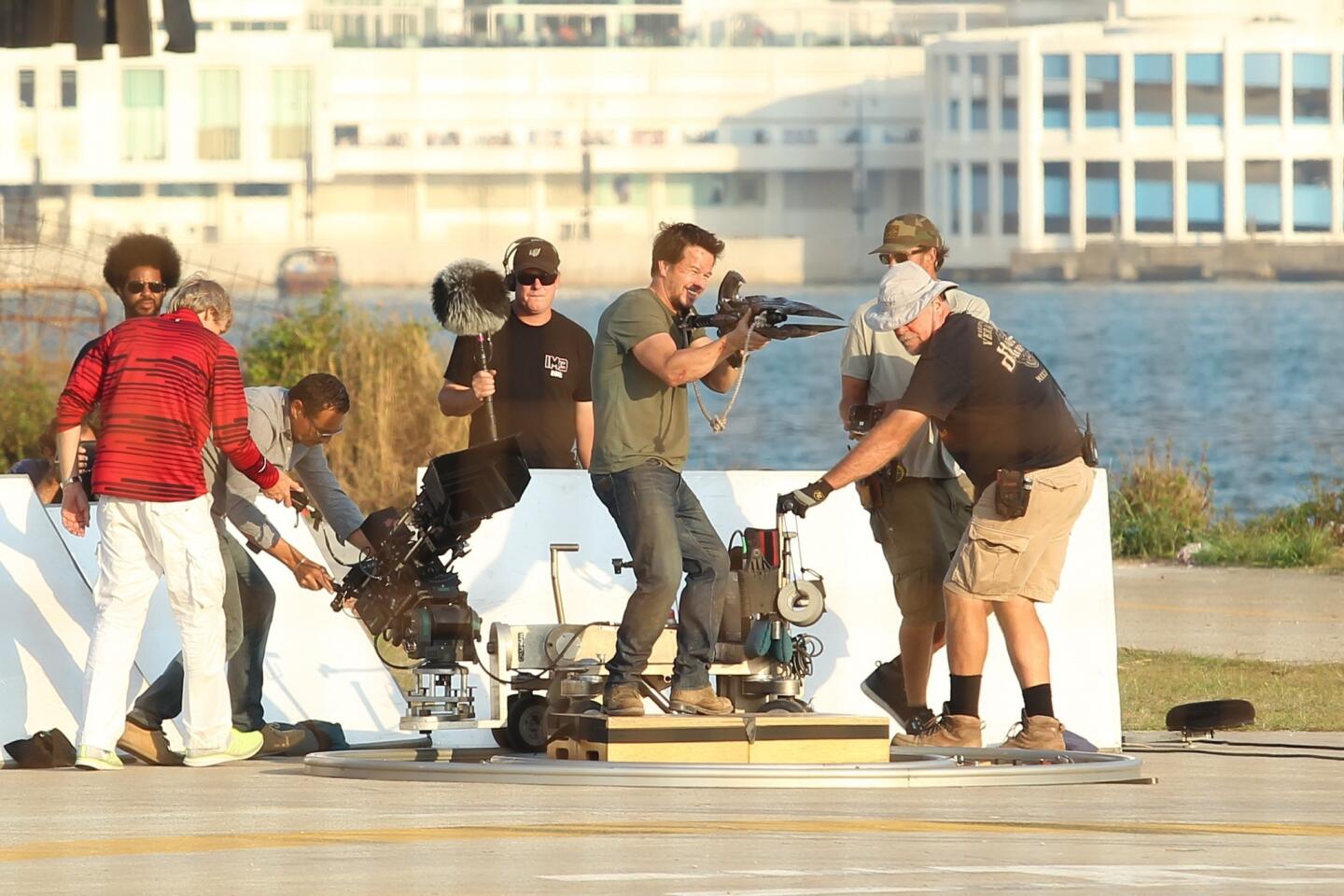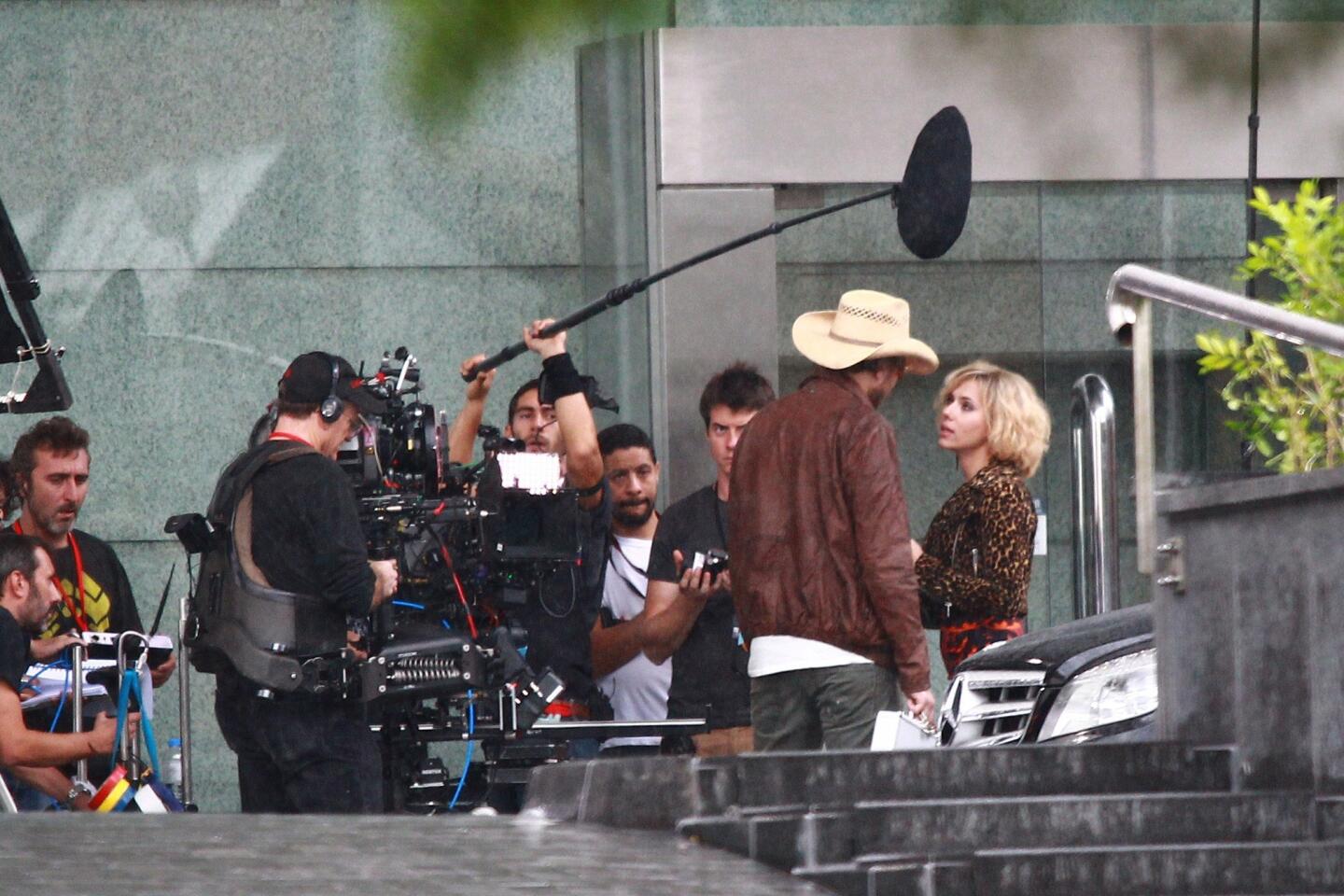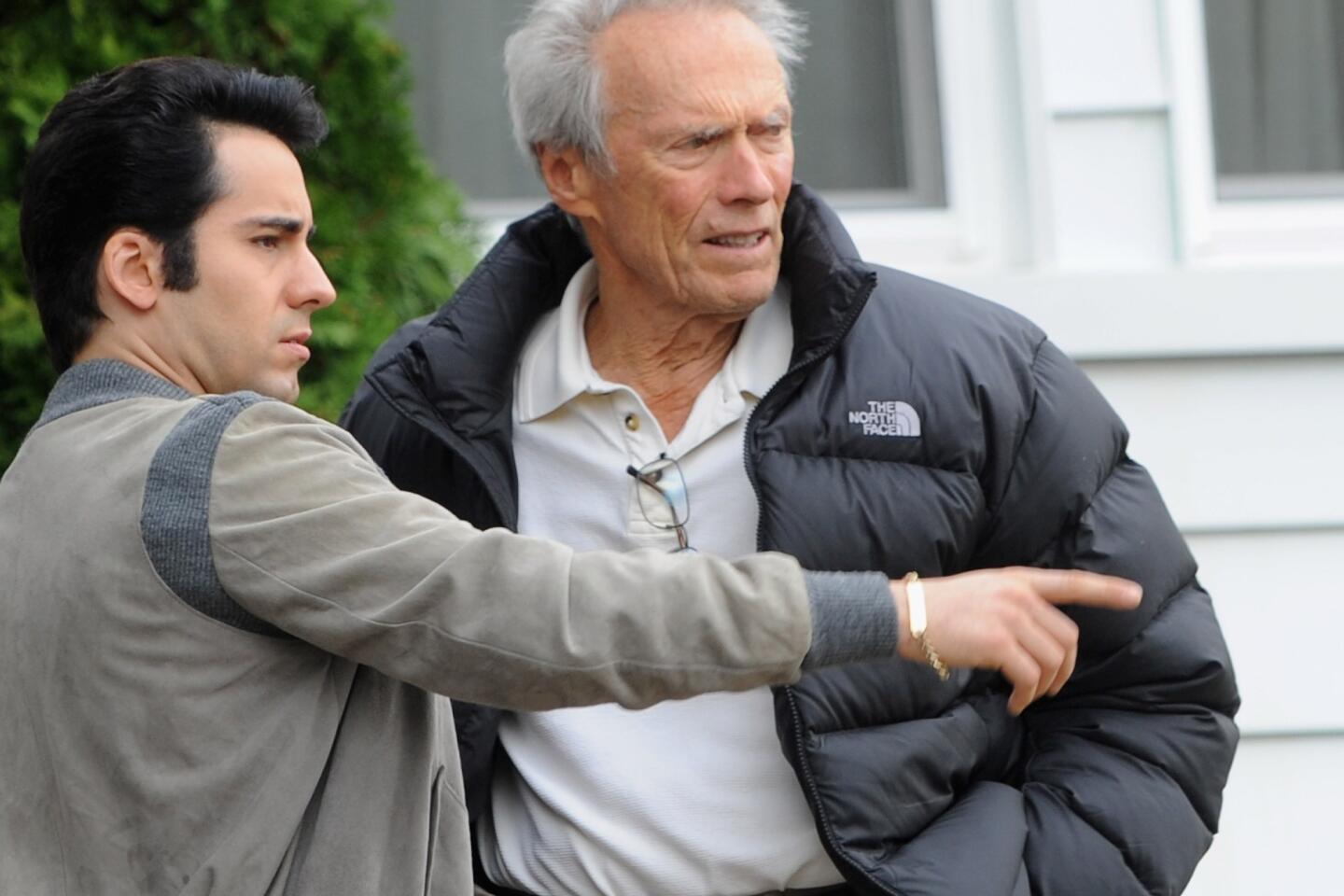When movies don’t let the facts get in the way of a good story
It may not be factual, but it’s truthful.
It’s an argument that wouldn’t survive in a court of law and would spark derision in a presidential debate.
But when it comes to movies, it’s vital guidance, especially when so many of 2013’s Oscar-contending films are being researched for their accuracy. It suggests that certain liberties can help create a compelling drama, as long as they don’t torpedo the story’s essential authenticity.
I first heard the factual versus truthful parallel from director Danny Boyle, who had just adapted Aron Ralston’s memoir, “Between a Rock and a Hard Place,” for the 2010 movie “127 Hours.”
Ralston had been hyper vigilant over the page-to-screen translation, insisting that Boyle had to correct the smallest missteps — Ralston’s truck, he told the director, pulled into a parking space from the left, not the right. Concerned that Ralston was counting grains of sand rather than enjoying the beach, Boyle explained his poetic license: “It may not be factual, but it’s truthful.”
GRAPHIC: Spotlight on screenwriting
Considering the recent crop of fact-based movies, in which embellishments have jeopardized the underlying film’s legitimacy, Boyle’s maxim has been tested to the breaking point.
Several news organizations now examine the accuracy of big releases as if they were campaign advertisements, and it’s not just biographies that are subject to strict scrutiny. Even the makers of the fictional thriller “Gravity” have been forced to explicate their scientific research.
Among the award-contending movies of 2013 based — loosely or not — on real-life events are “12 Years a Slave,” “Captain Phillips,” “Fruitvale Station,” “Saving Mr. Banks,” “The Wolf of Wall Street,” “Mandela: Long Walk to Freedom,” “Philomena,” “Dallas Buyers Club” and “American Hustle” (although director David O. Russell adds this caveat in a caption that starts the film: “Some of this actually happened”).
What’s notable about some of the movies under the truth-squad microscope is that they are being adjudicated less for what they include but, rather, for what they leave out.
The excisions inevitably depict the film’s central character more favorably, including trimming Walt Disney’s anti-Semitic friends and union-busting beliefs from “Saving Mr. Banks”; steering clear of accusations that the skipper of the Maersk Alabama sailed too close to the Somali coast in “Captain Phillips”; and disregarding the plight of Jordan Belfort’s stock-swindled victims in “The Wolf of Wall Street.”
PHOTOS: Behind the scenes of movies and TV
The people behind these films have defended their work aggressively, and it’s obvious why filmmakers and actors now hit red carpets as ready to clarify their narrative choices as to spell out who designed their evening wear.
If you can artfully deflect criticism of your artistic departures, as Ben Affleck preemptively did with 2012’s “Argo,” in which almost the entire third act was concocted, you can win the best picture Oscar. But if your fabrications become more prominent than the movie itself — as befell 1999’s “The Hurricane,” which sanitized its protagonist’s criminal and military history — your awards chances can vanish instantly.
The trickiest territory is where the central facts are disputed. Last year, Sony’s “Zero Dark Thirty” went down in Oscar flames after critics, including U.S. senators, said the film falsely asserted that torture helped locate Osama bin Laden. Sony didn’t respond promptly to the attacks, and “Zero Dark Thirty” was discredited.
In recent weeks, Paul Greengrass has taken the offensive in describing why his “Captain Phillips” is accurate, even if it compresses certain events and alters some details.
“I’m 100% satisfied that the picture we present of these events in the film, including the role [played] by Captain Phillips, is authentic,” the British director said in an online chat that was largely focused on defending the film’s truthfulness.
In talking about “Saving Mr. Banks” with my colleague Rebecca Keegan, Tom Hanks (who plays Disney) said the film’s screenplay, about the creative tussle in making “Mary Poppins,” was never focused on the studio chief’s political views.
GRAPHIC: Best of 2013 | Entertainment & culture
“Everybody asks about the strike and the anti-Semitism. But by 1961 it was far enough in the past,” Hanks said. (The film also omitted some of the worst behavior of author P.L. Travers, played by Emma Thompson, who was far meaner and less happy with the “Mary Poppins” film in real life than is depicted on-screen.)
You can argue about what was left out of “Captain Phillips” and “Saving Mr. Banks,” but the films, nevertheless, preserve their essential truths — the former remains the story of a freighter captain kidnapped by Somali pirates, rich in detail about the motivations and struggles of his captors, while the latter is still a look at how Travers scrapped in Hollywood, complete with specific scenes (some based on extant audio recordings) of her back-and-forth with the “Mary Poppins” creators.
Critics haven’t been giving “The Wolf of Wall Street” the same pass, saying it tells only one side of the tale.
When I asked screenwriter Terence Winter if in making a movie about Belfort, who was convicted of money laundering and securities fraud, he and director Martin Scorsese ever considered depicting his victims, he immediately said no.
“That was never part of our story,” Winter said.
PHOTOS: Box office top 10 of 2013
But several of those whom Belfort fleeced said any true biography of the Wall Street hustler is incomplete without any reckoning of the working-class people whose savings accounts he emptied and lives he ruined. The daughter of one former Belfort associate went so far as to write an open letter to Scorsese and “Wolf of Wall Street” star Leonardo DiCaprio, saying the movie glorifies Belfort’s conduct and ignores the human consequences of his criminal deeds.
“Your film is a reckless attempt at continuing to pretend that these sorts of schemes are entertaining, even as the country is reeling from yet another round of Wall Street scandals,” Christina McDowell wrote. “This kind of behavior brought America to its knees.”
In talking to The Times’ Glenn Whipp, DiCaprio agreed that the movie doesn’t judge Belfort, arguing instead that films with such moral compasses “don’t last....What lasts is a filmmaker being honest about the portrayal of who these people are, and [Scorsese] doesn’t try to sugarcoat or give some false sense of sympathy. He doesn’t try to apologize for the actions. He just shows it the way it is.”
DiCaprio’s defense unintentionally proves the film’s critics’ point: That “The Wolf of Wall Street” actually could be factual — the complaint isn’t that Belfort didn’t do what he’s shown doing — without really being truthful.
And if that label sticks, the film might be a tough sell with awards voters.
ALSO:
‘Wolf of Wall Street’s’ excess, corruption hit a nerve
Smaller films making inroads with holiday movie audiences
Leonardo DiCaprio on ‘Wolf’: What is the drug behind such hedonism?
More to Read
Only good movies
Get the Indie Focus newsletter, Mark Olsen's weekly guide to the world of cinema.
You may occasionally receive promotional content from the Los Angeles Times.
